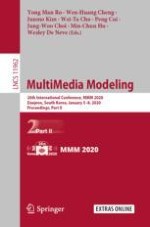2020 | OriginalPaper | Buchkapitel
PRIME: Block-Wise Missingness Handling for Multi-modalities in Intelligent Tutoring Systems
verfasst von : Xi Yang, Yeo-Jin Kim, Michelle Taub, Roger Azevedo, Min Chi
Erschienen in: MultiMedia Modeling
Aktivieren Sie unsere intelligente Suche, um passende Fachinhalte oder Patente zu finden.
Wählen Sie Textabschnitte aus um mit Künstlicher Intelligenz passenden Patente zu finden. powered by
Markieren Sie Textabschnitte, um KI-gestützt weitere passende Inhalte zu finden. powered by
